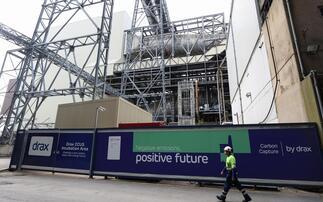Annual investment is at least $20bn short of what is needed to hit target for universal and sustainable electricity access by 2030
The world is "dramatically off-track" to meet global targets for universal energy access by 2030, according to a new report from Sustainable Energy for All (SEforAll) released yesterday.
The paper from the UN-backed body reveals investment in energy access is more than $20bn a year short of the level needed to deliver reliable power supplies to everyone in the world, despite nations having unanimously agreed to pursue universal energy access under the 2030 Sustainable Development Goals (SDGs).
SDG7 pledges to 'ensure access to affordable, reliable, sustainable and modern energy for all' by 2030 and features a raft of targets for accelerating the roll out of low carbon energy infrastructure.
The report shows that in 2016/6 investment in energy access totalled $30.2bn, up on the previous year but still well short of the estimated $52bn needed annually in order to meet the SDG. More worryingly, in target countries investment levels have barely increased over the last year, and in some cases fell by up to 50 per cent, according to the report.
"The good news is that renewables offer us a powerful opportunity to provide reliable and affordable clean electricity both through the grid and off-grid," explained Rachel Kyte, CEO and special representative of the UN Secretary-General for Sustainable Energy for All. "The bad news is that we are not yet seeing a strong enough project pipeline or sufficient levels of public investment that will crowd in private finance to seize this moment of falling prices for revolutionary technology."
Kyte also highlighted a "worrying" uptick in investment for coal-powered energy, which she insisted is "not an answer to energy poverty". Although 54 per cent of finance was channelled into renewables in 2015/6, investment in grid-connected fossil fuel plants accounted for $8bn, double the level recorded in 2013/4.
The paper shows there are still 600 million people living in Africa without energy access, yet only 17 per cent of the total finance tracked in the report was allocated to the region in 2015/6, compared to 32 per cent a year earlier.
Dr Barbara Buchner, executive director of the Climate Policy Initiative, said the report's findings should be a "wake-up call" to policy makers and investors.
"We are falling further and further behind goals for energy access investment," she warned. "Regions with the highest needs, like Sub Saharan Africa, are getting the smallest share, while we're seeing big gaps for some of the technologies with the most promise, like off-grid renewable energy and clean cooking."









